Violet Evergarden: Learning Empathy and The Lost Art of Letters
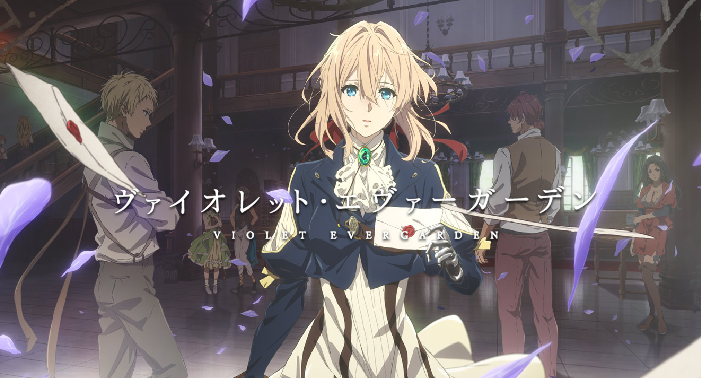
“Each time I learn words I didn’t know, I reach my hands into traces of the past; But there may also be words, that I can’t understand on my own”
– Translated Lyrics of Sincerely, the opening theme of the anime
Violet Evergarden: A Broken Child of War
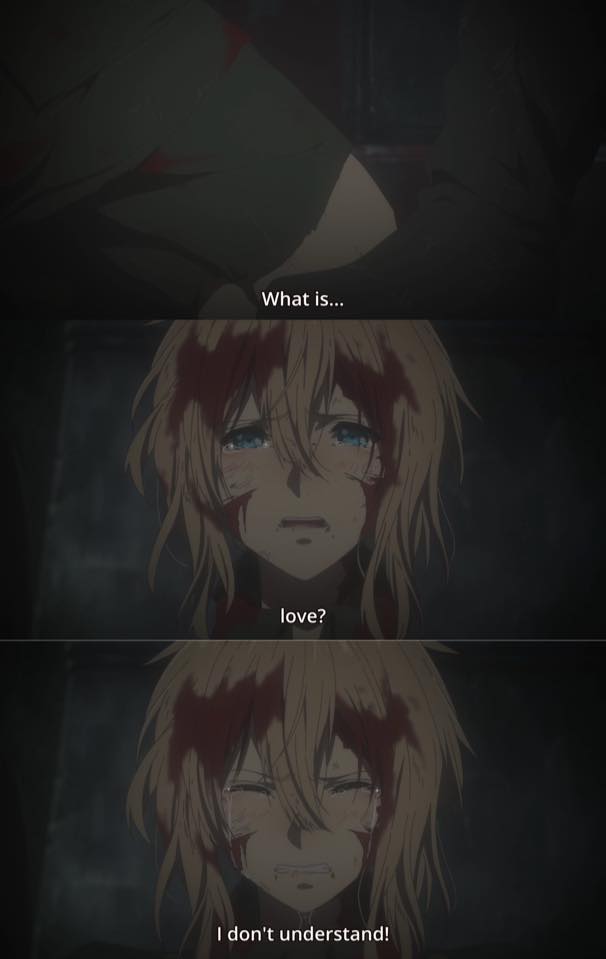
From the beautiful detailed animation to the soft instrumental score that highlights the emotional content, Violet Evergarden is an anime that is considered a work of art due to the themes of war, humanity, and empathy it dives into. It touches its hearts of the viewers by emotionally entangling them into a broken character and her journey to learn what the phrase “I love you” means. Violet Evergarden, the main character of the anime, is an unusual character in many ways. First, she is a child solider. Second, because of her difficult upbringing, she is rough, emotionless and acts robotic.
Orphaned at a young age, General Gilbert took her into the military, exposing her to war at a young age. Although the animation depicts Violet as a beautiful young lady, Violet’s character at the start is anything but that. She is rash, aggressive, emotionless, and kills without thought. She is depicted as a “tool,” a “war product,” and a “weapon.” Violet has no memories of life without war and does not know anything about the real world. In fact, General Gilbert had to teach her to read and write and gives her a name. Although the general is the one who brought Violet into the military in the first place, he regrets raising her and bringing her up in war when he sees her lack of character without him and her inability to have her own emotions. Despite the general’s colleagues believing that Violet is a “war machine” without feelings, General Gilbert insists that she is a human who has a heart and is determined to give her a better life after the war. He sees potential in Violet, and when she sees this she is puzzled; she knows nothing but his commands and orders. Imagining life without orders and not being in the military seemed impossible to her. The general sees this in Violet and is devastated. First because he realizes that he was the one who aided her in becoming the broken child that she is and second because it pained him to see her without a personality of her own. When the general tries to treat her like a normal girl, Violet is unable to understand. For example, when he asks her to pick a gift at the fair, she sees it as an order and does not know what to get. She ends up picking an emerald brooch because it reminded her of the colour of the general’s eyes.
In the final battle, Violet fought to protect her general and in the process, she lost both arms. Although Violet sacrificed so much to save him, her sacrifice was futile because the general pushed her out of the way from an exploding bomb and died to save her. Before the explosion, he commanded her to “live and be free” and insisted that she live, saying that he loved her. Violet, confused, and not understanding what “living free” and the phrase, “I love you” means, fell unconscious and was saved by one of the general’s friends, Claudia, who later hired Violet in his postal service company.
The Search for Love in a War-Torn World

War trauma is devastating to all. When one kills, such as in war, one dehumanizes oneself. Violet Evergarden was only a child, which is even more horrific because she was conditioned to be emotionless and to be someone who only listens to orders. One can argue how can the general say he “loved” her when he turned her into this “war machine?” The general to some extent also is also a product of war trauma and has come to realize the devastation war has on a young child in bringing up Violet. However the “love” that he mentioned seems to come from his caring actions such as standing up to others who believed she was only a “tool,” giving her a name to reflect a beautiful personality that he hoped she would grow into one day, having hope in her, teaching her to read and write, and ultimately sacrificing his life to ensure that she lived. He also wanted her to become adopted and live a normal life after the war and had set up arrangements with a good and proper family to take care of her. Violet did not understand any of these feelings. Why did the general sacrifice his life at the end? What did “free” mean? What was “love?” War destroys love, freedom, and humanity. Violet decides she must find out what the general was referring to by those last words he told her. In order for Violet to learn feelings, she must learn to have empathy for others and witness love for her self. And so she embarks the journey to learn what “love” means.
Empathy: Can a Child of War possibly Learn Empathy?
“Goodbyes are bitter, and “I love you” carried a distant scent. These incomparable feelings are terrifying, but are also terribly precious.”
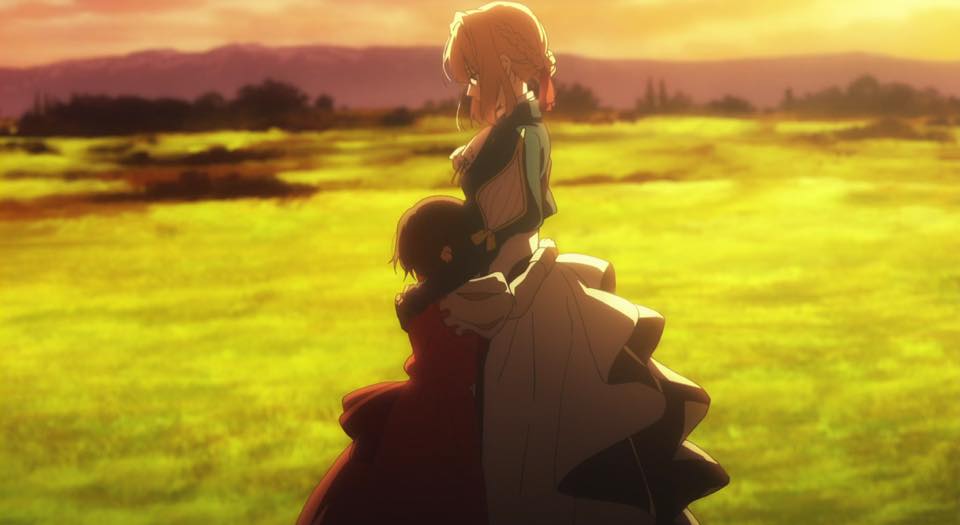
Violet Evergarden is up on what it seems to be an impossible mission: the mission for someone who is traumatized and destroyed by war and killing to learn what love is. In order to accomplish her mission, Violet decides to work for Claudia’s Hodgin’s postal service company. In this company is an Auto Memory Doll Service, which is a group of type writers who help people who are unable to type put their emotions and feelings into words.
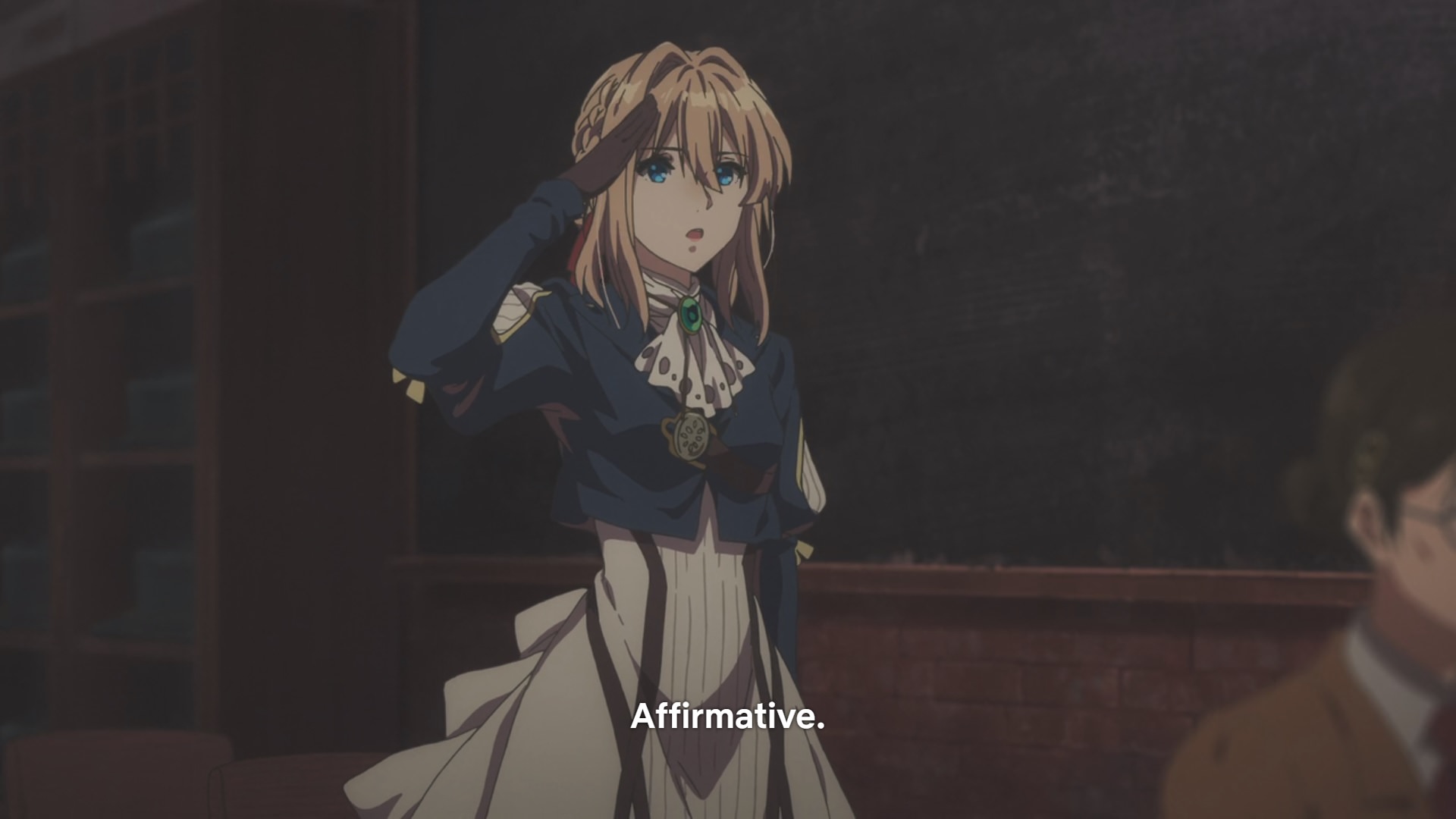
An Auto Memory Doll must be a good writer, fast typer, and most importantly be able to connect with their clients’ feelings in order to help them express their true emotions into a letter. Violet, although knows it may be an impossible mission, is determined to give the work a try. Efficient, smart, and dedicated, she takes her “orders” seriously, but is unable to connect with people at the start. She takes information literally and at first writes letters similar to a military report. As she gets to know other people in the company, she realizes how complex emotions are and how words don’t always encompass them fully. Others find her different and difficult to work with due to her stiff, rigid, and flat personality. Although the animation gives her large blue eyes brimming with emotion, her face throughout the start of the animation remains relatively flat.
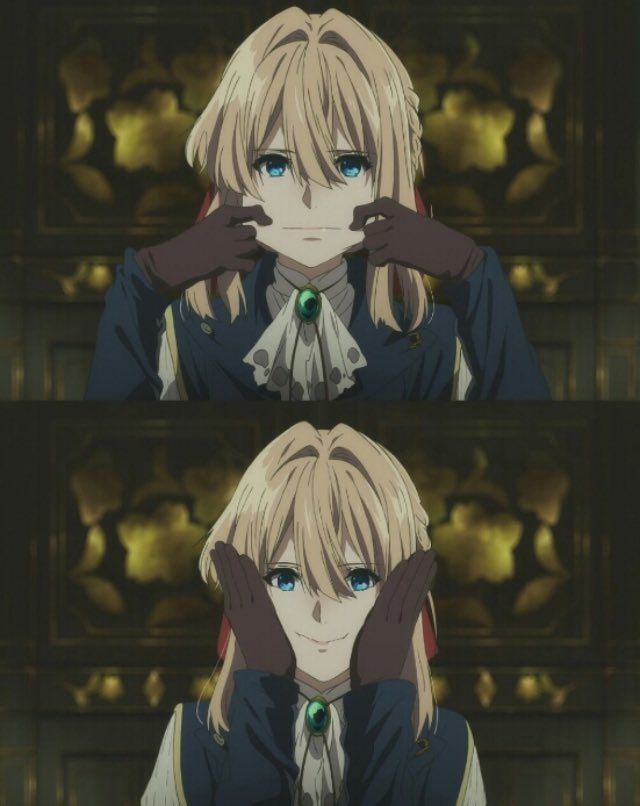
Despite failing several times, Violet’s co-workers encourages her to keep trying when they see her brilliance with typing and her hard-working nature. In a way, the “doll” image of the work fits Violet: she is mechanical like a doll and is stiff and emotionless like a doll. However, as Violet starts to listen to other’s people’s stories, she slowly starts to connect with her own feelings and write touching letters. This is a gradual and slow process that happens each episode at a time with increasing emotion and connection as the series progresses. Each person she meets, she witnesses their story, their feelings, which in turn somehow connects her to her own feelings. Once she is able to connect to her feelings, she is able to write a meaningful letter. Along the way, Violet begins to understand some of her own feelings that at the time she didn’t know what they meant.
Loss, Grief, Loneliness, and Love
“Sadness is cold, and “Thank you” is coloured with warmth. Each time I come into contact with something intangible your voice resonates deep within my heart.”
– Translated Lyrics of Sincerely
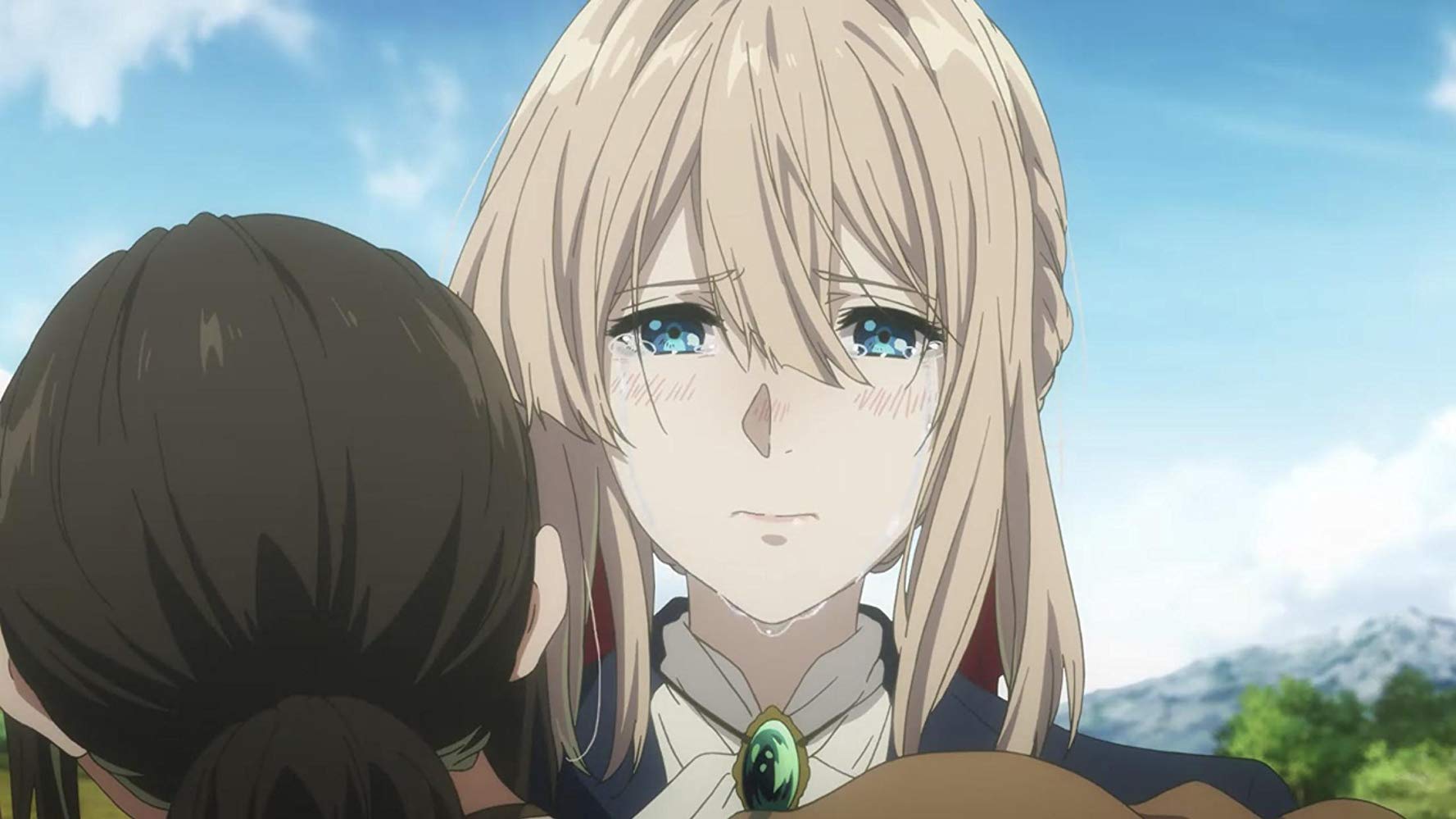
Violet lives in a fictional society that has been devastated by the evils of war. As she goes on missions to write letters for others as an Auto Memories Doll, she comes in counter with people who have suffered from the war. However, Violet not only encounters families who have been broken by war, but also orphans like her, families torn by sickness, loss, and people hoping to express their emotions to a living loved one. The main emotions she comes to learn and connect with are loneliness, grief, and concern and how those are all somehow connected to love. Violet first starts with missions that are less complex. She begins with helping her colleague Luculia write a letter to her brother, who recently returned from the war and became an alcoholic, and a young princess who is soon to be married.
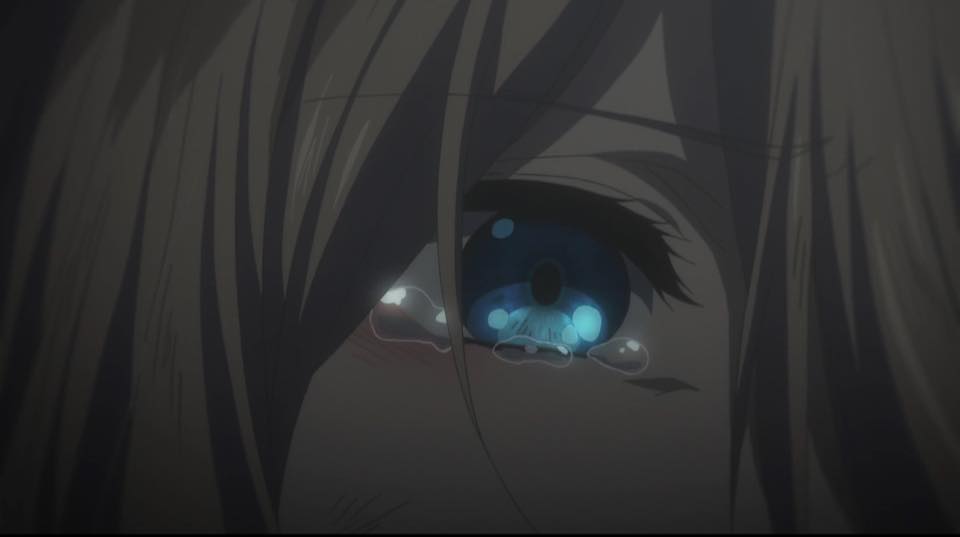
In both cases, Violet learns the importance of expressing emotions of care to the other person and gained confidence in listening and relating to others. Violet then embarks on a typing mission with an orphan like her who helps her learn what loneliness is. For the first times, she meets another orphan and is able relate to him. Through him, she learns about the feelings of missing someone and loneliness and starts to realize that she herself has those emotions. After Violet is able to start relating to others, she embarks on helping others who have gone through much more difficult traumas. She helps fulfil a grief-stricken play writer’s mission in finishing the script to a dramatic play for children in memory of his deceased daughter, she helps a dying mother write 50 letters for her young daughter’s future birthdays, she goes on a forbidden mission to help a dying solider write a letter to his family and girlfriend, and ultimately writes a letter for the deceased General Gilbert expressing the feelings she wished she could have said, but never knew the proper words to say. Seeing other people’s losses and griefs, helps Violet understand her own grief over the general. She comes to learn that those you love never fully leave you. Violet also sees the horror of war and the pain of loss and realizes that every life is valuable. For the first time she realizes she is “burning” from all the lives she took in war.
The Pain of Empathy and Love
“Do I have any right after I killed so many people as a weapon? I must have prevented them from keeping promises of their own! Promises that they made to loves ones of their own! Everything I’ve done so far has sparked a flame that is now burning me up.” Violet Evergarden
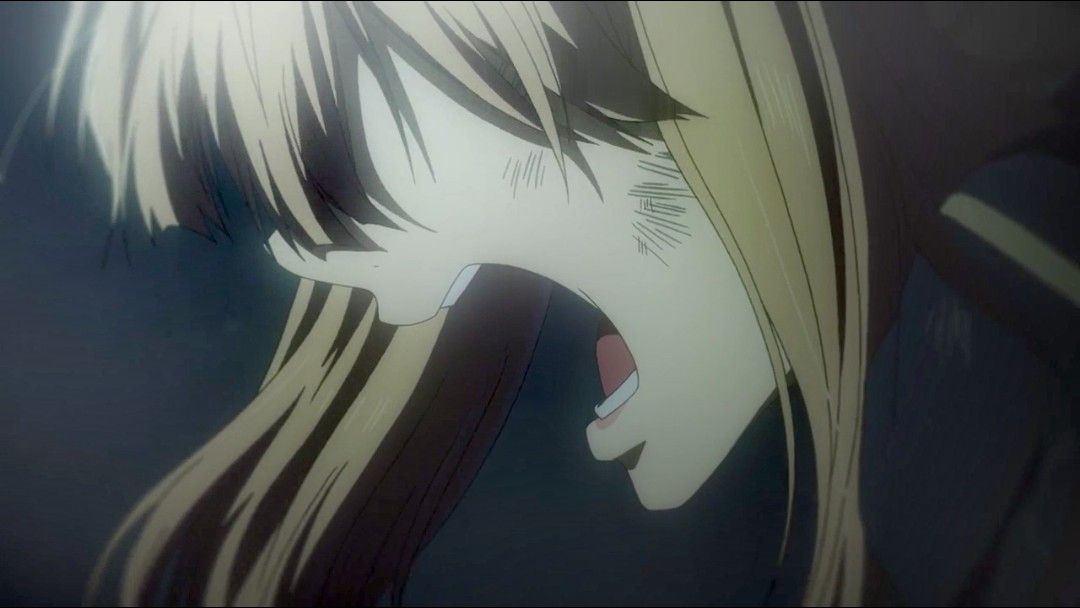
As Violet learns to understand feelings of others and herself and as she witnesses other people’s losses and stories, she begins to feel guilt and pain about all those she killed in the war. At the start of the series, Violet did not realize that killing was bad, especially if it was an order. However, as she matures throughout the series, she begins to have flash backs and feels guilty for writing letters to help connect people after taking so many lives. She suddenly feels that her hands are filled with the blood of others, and begins to feel tortured. She goes through a period of not working or seeing people and sits with herself to understand just how grave taking people’s lives she didn’t know was. Filled with agony, she is burdened and tortured by her pervious actions to the point where she attempts to strangle herself. One thing, however saves Violet: the care and concern of others. Violet receives a letter, her first letter, from her co-workers expressing concern and care. She later is reminded by Claudia, the postal service owner, that though her deeds as a solider will never be erased, the good deeds she has done by writing letters and connecting with others will also be never be forgotten.
“You’re going to learn a lot of things, But it might be easier to keep living, if you didn’t learn them, if you didn’t know them. You don’t realize your body is on fire and burning up because of the things you did. You’ll understand one day. And then you’ll realize for the first time that you have many burns.”
– Claudia Hodgins
Violet comes to terms with what she has done and decided to never kill again. She no longer wants to take orders. She no longer wants to be part of a war. For the first time, Violet no longer needs to be ordered or needs to be under a general. For the first time, Violet is thinking as Violet and not a “tool” of war. Violet transforms from a “tool” of war to a message of peace.
The Lost Art of Letters
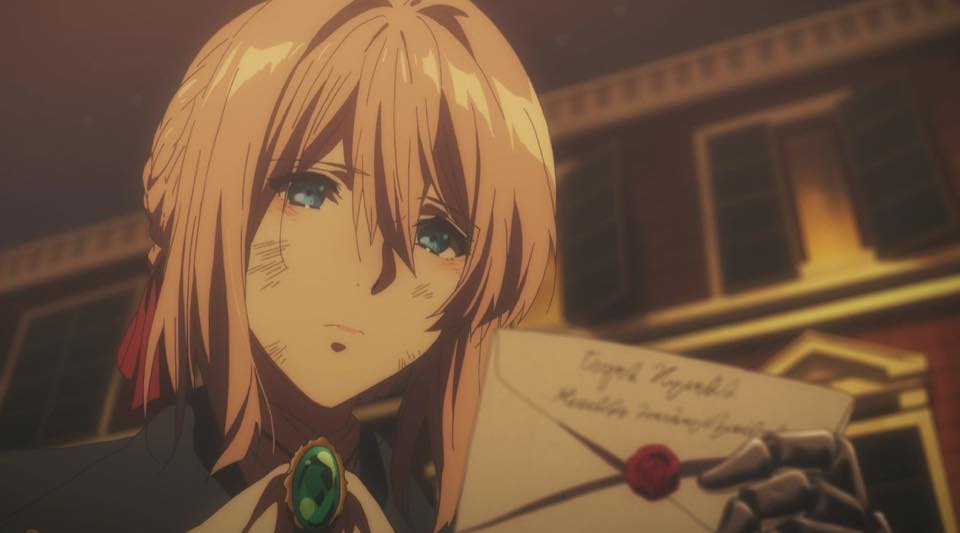
Although a smaller theme throughout the anime, letters play a fundamental role in development of this story. It is through letters that Violet learns how to express herself in words and it is through letters that she is about to help others connect with each other. Letter writing is a lost art in our society today. However, after watching this anime, one is reminded of the power of a beautifully written letter in expressing words that are difficult to say in person.
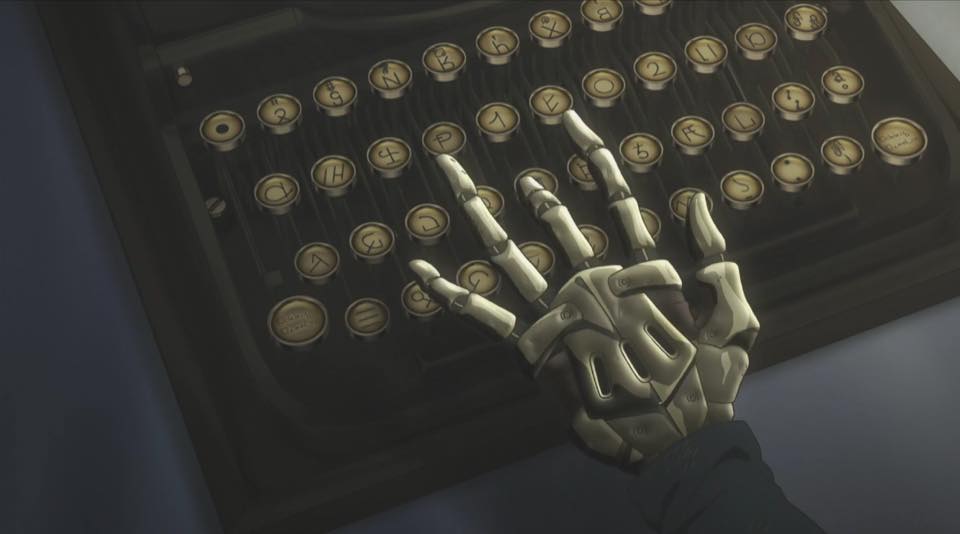
Emotions are nearly impossible to describe in words. Violet comes to realize this when she tries to put feelings into words only to find that she took things too literally or to find that the words did not express the feeling accurately when she first begins to write as a Doll. Letters seem to serve as many purposes: they help express feelings, they serve as a way to release feelings to those both living and dead, they make others feel good, and most importantly are used to express love. In her search to find what “I love you” means, she comes across millions of letters of people saying, “I love you.” Because of this, she realizes love is universal. Furthermore, when Violet receives a letter for the first time from her caring co-workers, she realizes that receiving a letter from someone can make you feel incredibly good. This furthers her passion in making sure every letter is delivered and written well. One of the most interesting ways letters are used in this anime is to express feelings to someone who is no longer living. Letters are used to release feelings to someone who may not be alive, but who is still loved dearly. For example, Violet writes to the general even though he is no longer alive as a way to express and release her feelings. Because this anime is set post-war, many people want to express their feelings to relatives living and alive and letters are the best way to do so. In the end, there is a letter festival in which letters are released into the sky. Violet’s letter to General Giblet lands in a meadow full of violet’s, a reference to when the general named her Violet in hope of the beautiful woman she would grow into.
“Spring, summer, autumn, and winter… Many seasons have come and gone, but the one with you isn’t coming around at all. At first, I couldn’t understand. I couldn’t understand anything about how you felt. But within this new life you gave me, I’ve begun to feel the same way as you, if only a little, through ghostwriting, and through the people I‘ve met along the way. I believe that you are still alive somewhere. So, I shall live, live, live, and live some more, though there’s no telling what life might have in store. And if I can see you again, I want to let you know… that the phrase “I love you”… I understand it a little now.” Violet’s letter to Gilbert
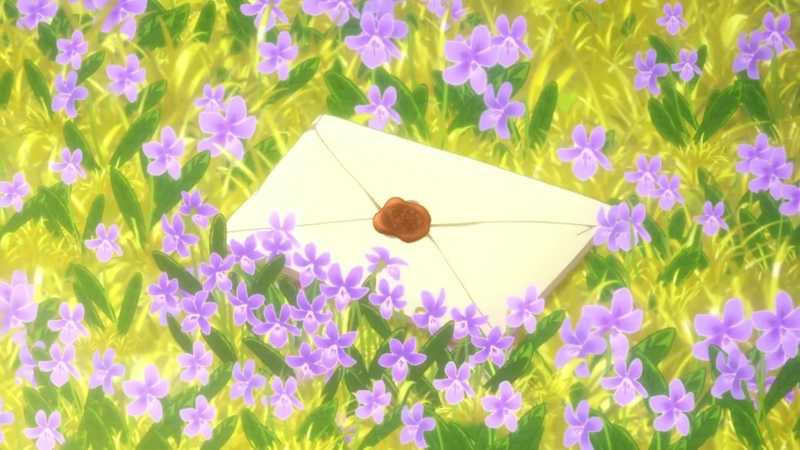
Empathy, Love, and Letters are all Connected
The anime Violet Evergarden brings together empathy, love and letters all together. Letters are the tool that helps Violet learn empathy and to access feelings. It is through empathy that she begins to have a small taste of what love is and it is through the letters that Violet helps spread messages of love to others. This incredible anime shows that love is the root of all human connections and that even those who are so damaged have the ability to love. This anime does not hide the pain and hurt that also comes with love: grief, disappointment, and hurt. Violet’s journey is a journey we may all have everyday: the journey to love and live loved in an imperfect world.
“Let’s just quietly
Listen to the wind under the same sky
Even though
You are not thereAlready how many times have
The words I’ve written flown away and disappeared
Like feathersLove is always
Existing where the sun shines
Even if it can’t be seen
Even if it can’t be felt
May it be by your sideJust gently
The trees in the forest sing in the rain
As if they are
Cheering me upI walk on earth
That is not yet dried
A road to somedayLove is always
Like clear water
After I have accepted it
I am separated once again
Just like youLove is always
Existing where the sun shines
Even if it can’t be seen
Even if it can’t be felt
May it be by your side”Translated Lyrics to “True,” Violet’s final writing task in the series
What do you think? Leave a comment.




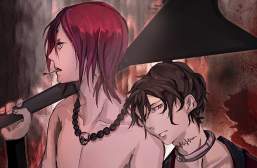
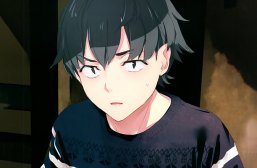
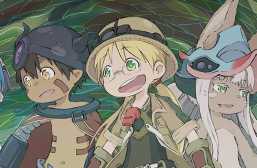
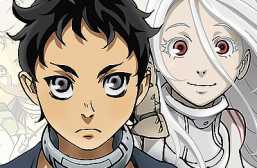
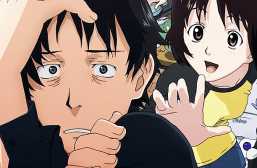
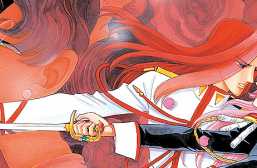
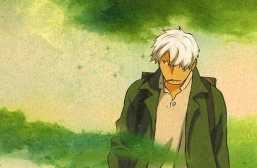
I sat down to watch it. Starting from episode 7 o tried to hold back my tears once I got to episode 10 I completely lost it and cried for a good while. Also episode 13 but me really hard as well. Kept crying after watching that last episode for 30 minutes. I never realized a show can make me do this and I’m so glad I got around to watch it and avoided all spoilers.
I seriously feel like violet evergarden is similar to Legend of Zelda breath of the wild… The style, the main character being in war and almost died… I don’t know really.
You write great articles about anime. Which anime series will you cover next? I can’t wait!
Thanks Coletta! I appreciate that! I am thinking the Promised Neverland!
Omg, can’t wait!
This anime is sooooo underrated. It’s really a must watch. And as someone who is REALLY critical of shows and movies, especially those based or inspired by history and I can’t find a single flaw in this show. It’s absolute perfection from seccond one. OK one thing is terrible tho: English anime voice overs. It just sounds bad. The German version is by far the best
I agree the english dubs never do the anime justice!
Violet Evergarden made me cry. Not many anime have managed that. A great, beautiful series. I’ve not got round to watching the extra episode released more recently yet. Perhaps I’m waiting for the emotional trauma to resolve first.
It’s such a great series. I haven’t seen the OVA yet either, I’m waiting for the perfect time to watch it!
I was thinking about watching Anohana (for the 4th time) for some emotional catharsis but perhaps I will watch give this a go instead.
If you liked Anohana I would say that there is a high chance that you will enjoy this one as well. I certainly am a big fan of both.
I just finished watching the series today, and it punched me in the feels even harder than Anohana. Do it!
Wonderful show, I actually looked forward to the tears that I knew would come.
I usually don’t gravitate towards anime like this, but you make sound so amazing I might give it a try.
It amazes me how some anime are able to convey their themes and connect emotionally better than most live action shows are able to.
Violet Evergarden was not only my favorite show of last year, but is currently one of my favorite shows (if not my #1 favorite show) of all time (live action included). It really hit me in a way very few things do. Some have complained about how formulaic or manipulative this show is, but that doesn’t change the fact that I was moved to tears on many occasions, whereas most shows (or even movies) struggle to even move me to tearing up even once.
I think the discussion of manipulative versus genuinely tear-jerking is one of evaluating the strength of the writing. The characters of Violet Evergarden were well-developed, even the ones that had a limited screen time of a single episode. It might not work for everybody, but I agree with you that the show was really good at making the viewer emotional.
A bit longer than what I normally read but I think your analysis of Violet Evergarden is spot on.
Thank you for a beautiful analysis. I thoroughly enjoyed the series and watched it in two days.
More episodes with different types of love and feelings would have been better.
However, the punch in the stomach, devastating love associated with loss depicts a difficult full of sorrow post war era that renders realism.
Perhaps for Violet needed such immense emotional experiences to start having emotions and empathy.
I loved the series, adored the music and artwork.
I love this article. I just watched the whole anime and it’s was absolutely amazing. The animation was gorgeous, the backstory was thrilling and Violet as a character was likeable-loveable. I’d been avoiding anime for a while now, but for some reason this anime drew me in and I’m so glad I spent my entire afternoon watching the whole thing. Episode 10 was heartbreaking, and so was episode 13. Definitely recommend to everyone!
Much better than Your Lie in April.
After finally acquiring Netflix I have watched this anime and the bonus episode. And by gods this was so beautiful. There was points where it me like a truck and I absolutely am grateful that I have seen this anime. This was something I needed.
This series made me cry so much i used a whole box of tissues
For a show to tackle PTSD like this is bold, a lot of shows that cover mental health issues usually turn the character into a caricature of a stereotypical “lunatic” or “psychopath” which is both inaccurate and highly offensive who people who fought for their country.
For the show to portray PTSD as an inability to understand emotions and for the protagonist to come off as “cold” is very similar to how soldiers struggle to fit back into civilian life, most people view these ex-soldiers as the problem because they the ones being “insensitive”.
The on-the-nose portray of the “broken doll” metaphor is another obvious but bold choice as a lot of ex-service personal say they feel like a tin soldier who were used, abused and then thrown the scrapheap when their leaders were done with them.
A fantastic show with a very strong and morbid message about how veterans of the armed forces are treat the world over, people who feel like a stranger in their own community and feel as though they might as well of not bothered fighting for all the good it did them 🙁
Sorry I got a bit passionate there. To see such a portray was interesting as the aftermath of military service is rarely explore properly IMHO.
People who claim the story is lacking done understand the underlying feelings and symbolism. The obviously are used to anime in which the story is thrown at you and the didn’t adjust their habits. If they say they understood it and still don’t like it they clearly didn’t relate to the story because it’s so beautiful and I don’t feel they tried to understand violate and instead saw the show as a viewer (understandably).
It was a great series, and it was amazing, the emotion, the beauty, and the human capability that no matter how much you think you don’t have feeling everyone does, it it will make ya cry.
I’m not gonna lie, initially I thought it was going to be some action anime set during a war and thats what hooked me. (I didnt do too much research) I’m not even that much of an anime fan but decided to give it a look. It was… Boring at first and not what I expected but I stuck with it and im glad I did. I’m not even that much of an emotional person, and I’m not going to go so far as to say I cried, but I would be lying if I said I didnt get a little emotional. 😛 I’m genuinely surprised I enjoyed a show like this since the only anime I do watch are real action packed like naruto. If anything, im proof that anyone can enjoy this show.
Unpopular opinion – The show is really bland and not that emotional honestly, emotions hardly get through. The animation and the music is sublime though, which I don’t deny.
Thanks, you’ve convinced me to give this show a try, I’ve heard of this anime and my friends keep talking about it, but I don’t seem to be interested, bcos I thought it was boring, considering it’s got less action in it, I’m use to supernatural animes, with plenty of fun, action etc so it’s difficult to watch one like this!
Some of the most detailed animation I’ve ever seen.
All the 3 stories that I felt to be most touching were not even the story of violet herself, those scenes made my eyes burst in tears and nose block… Episode 7, when violet jumped over the lake to walk on the fallen leaves, and the book writer said, “How I wish I could hear you call me that a thousand times more, I wish you didn’t had to die, if only you had lived, I wish that for you” that’s the most touching scene for me on the entire series, absolutely beautiful. The other two were episode 10 letter to Ann, especially the last part. And episode 11, the dying soldier writing the letters back to his home, and when they got his letter. The series is kind of like black mirror.
Thank you! I watched the show because you covered it. And I’m not disappointed.
This was the show that Got Me into anime and I’ve watched around 60-70 other anime’s since, but this is still my favorite.
Violet has the biggest character development in the anime other than Mob…
Violet Evergarden is a quaint one. I can analyse it from top to bottom and all the technical aspects of the story (well, especially animation, art, music and directing) were absolutely top-notch. There never was any doubt about its quality there. From a purely analytical point of view, apart from some parts of its writing, it was virtually flawless. That said, I couldn’t really enjoy it completely. This can be due to comparisons with the original novel (I picked most of it up right before Violet aired). This could have been by chance – sometimes I miss gems because I couldn’t focus on the get-go, or I was a bit fatigued when I watched a particular episode. It could have been a bit of both. The single thing I could pinpoint that was worth changing is the length of each episode. I enjoy most episodic series as they have so much to offer each week, unless if they rushed it, which I think Violet did sometimes.
I think sticking to the 24-or-so-minute per episode rule made a number of their stories end up rushed, or, after comparing with the content of the stories coming from the novel, incomplete. To make up for the lack of time each episode, you could say it was inevitable that some details (of which may have been crucial to the story in my point of view); but, I do not think it was necessary to go by all the rules. This was a production that was hugely funded by Netflix, and it was complete even before the airing (TV) began. I think it may have been these crucial details that made the story feel a bit empty, and my feels left intact. It might have just been me, but on expressing such delicate topics (i.e. war and love, both at the same time), I thought the 24-minute mark was insufficient.
I similarly felt that Violet Evergarden‘s main constraint was in its structuring: in giving each of Violet’s assignments one episode (save for the series’ final moments), the pacing became uneven. I want to see a longer series, where variable episode counts can be used for each assignment. Having said this, Violet Evergarden is able to leave a powerful emotional impact on audiences, tell a coherent story, with a meaningful message despite its constraints, and this is no small accomplishment.
I so need to watch this show
I watched this completely blind, I didn’t even know the premise since I didn’t read the synopsis. I just saw this show in my netflix recommended bar and watched because the cover looked neat. I left completely emotionally broken to say the least.
Took me a while to get through this anime, short though it is, and I think it was because – unlike in a lot of shows where I’m super eager at the end of each episode to see the next – I enjoyed this one so much that I was ok taking my time with and enjoying it. That and it gave me time to emotionally recover from having my heartstrings tugged at. There were more than a few times where this anime actually brought me to tears – something which guarantees me to recommend a work.
Yay! Very powerful.
I loved this anime. I do not watch anime often but I loved this one. For me to watch anime it needs a good story. It was so amazing. I do writing myself and hope to one day reach that kind of story telling.
This series hit me hard. Very hard. But both episode 7. And 10 hit me that haddest. This is a powerful show.
I love this anime so much! every episode is like a mini movie on it’s own, it’s spectacular and breathtaking. I watch anime, serieses and movies in general only once unless they’re really special and there’s only 3 of that category for me, one of which is this anime. I’ve watched it 3 times so far and after reading your article I’m on the verge of watching it the 4th time.
I watched one episode last night, I finished it this morning. I dont think a show has pulled on my heart quite as much as this one has ever. It is exceptional. I did not like the English dub, the voice did not resonate with me in any way.
Episode 10 hit me close to home, I lost my mom in 2013. She died of kidney failure, at the time I didn’t realize the severity of the situation was just like Ann and I was just still a being a little brat that didn’t really care. Because being 13, death seems surreal it seems distant. But reality hits and I was soo shocked that I didn’t know what to feel. I didn’t cry and that was one of my biggest regret of my life. And episode 10 reminded me of a week before my mother died, She was in the Intensive Care Unit (ICU) and wanted to talk to me alone. There, she was breathing through a tube that entered her mouth. She wanted to talk to me alone, she was mumbling and I can’t understand what my mom was saying. Yet the thing that I hated myself the most is that I didn’t even try to understand. I was too focused on my own childhood world.
Skipping forward to 2018 my mom’s death was in the past yet after watching episode 10 I was sent back to that ICU room with me and my mom. Remembering that made me cry my ass off, I cried because I hated my behavior was to my mom prior to her death. I was a piece of crap. And I screamed and cried “I’m sorry mom!”. And now I am always haunted by that moment. By the message that my mom tried to tell. I regretted it so much because I neglected my mother’s last words. Now, I’m trying to be the best person I can be for my mom.
To All of y’all who is still blessed with a mother, cherish your time with her so you wont have any regrets that I had!
It’s been almost a year since I watched this but just being reminded of the events of the show has me in tears again. Thanks for reminding me of this great anime.
I would like to say thank you. That small chance that someone who would absolutely love this show just skips over it because its not typically of the genre they watch? That would have been exactly me. I thank you for pushing me out of my norms and towards something that was truly beautiful to watch.
Thanks! I am glad you liked it!
I first watched this anime because the animation was so gorgeous, but I stayed for the story, Violet, and her relationships with the other characters, especially Gilbert. Episodes 7 (the playwright and his deceased daughter) and 10 (the little girl and her mother) were some of my favorites and the most memorable episodes, for me, across all anime shows.
I think empathy is one of the most important themes to discuss and show in stories because it connects people together and their shared (or not shared) experiences, but I don’t often see this theme in anything I read or watch. Maybe it’s just not as explicit/obvious. ‘Violet Evergarden’ is a must-watch anime for anyone, anime fan or not, and I’m happy people are still talking about it. You did a wonderful job writing this essay!
Interesting discussion of Violet Evergarden. I will add it to my anime to watch list.
What a deep analysis of the MC! I will have to check out the anime!!
Your article was wonderful. I truly enjoyed delving back into the themes of this beautiful anime about what it means to have emotions. By finding her own emotions through others during her various journeys, she seems to demonstrate Cooley’s “Looking Glass Self.” The LGS is defined as where we find our own self through the interpersonal interactions we have with others.
In addition, the art style, soundtrack, and humour of the show all work in harmony to create a beautiful story that has touched the hearts of many.
Whilst discussing various anime series with Eden, she recommended Violet Evergarden to me and also suggested I should read your article, as a primer. It sounds like a fascinating series and your article has certainly done it justice. Nicely done and thank you.
Addendum. Well, I downloaded then viewed the Violet Evergarden series from beginning to end, in one sitting. A remarkable story and your article certainly does it justice. My favourite episode (No.5?) was the blossoming love story between the princess and the prince of a neighbouring country. Not because I’m in any way a royalist, but because it demonstrated how these two characters were as much ‘created’ by the expectations of their citizens as they were by the conventions under which they lived. To see them throw off their public personas and express themselves truthfully through the letters they were encouraged to write – admitting their weaknesses and petty foibles – was refreshing and a beautiful piece of storytelling. High or low, we are all human and all of us have our doubts and fears.
My only criticism of the series was the last episode (No.14) in which Violet worked with the opera singer. That episode felt unnecessary, as if it had been tacked on to the end of the tale, which really ended with episode 13. The last shot of Violet approaching the front door, then the camera switching to the new customer’s POV was perfect. That customer could have been you or me. Anyway, thanks to you (and Eden) for suggesting a new anime series. It was well worth viewing.
Thank you so much! I am so glad so many people learned about this anime through my article. !
Violet Evergarden ended up being one of my favorite animes. It’s crazy how you can end up feeling so much for the main character, who basically had little to no emotion while she served as a weapon during the war. The best part of the entire story is her drive to want to understand love. She works hard to understand words and the underlying connotations behind certain actions. It becomes a long process, but it is entertaining to see a once emotionless girl start to form meaningful connections with all sorts of people.
Such a beautiful article, just like the anime!
That is an insightful synopsis of the anime. Your article is as beautifully written as the anime. The anime is well-written and each episode brings forth new emotions and the character development of Violet is to die for. I loved reading your analysis. I liked the connection between empathy, love, and letters.
This is a beautiful overview of the anime! Violet Evergarden is great because it explores the many kinds of love and does not simply focus on romance. It will be interesting to watch the movie to see how they address the relationship between Gilbert and Violet and the form of love that they feel for each other.
This is one of my favorite animes because it is just so beautiful. You really captured her journey of finding out what “I love you” meant. Her character transformation is just amazing to watch and I can’t hold back my tears when I watch it!
Japanese folks feel free to add things or correct me, but that’s the impression I have. The fact that Violet’s VA is the same as Mikasa makes this scene sadder. She really did an amazing job voicing Violet.
Unlike in English, ‘ai’ does not show up in regular conversation. You don’t ‘ai’ your favorite food or even your family members. ‘Aishiteru’ is specifically romantic. So Violet not understanding is perfectly reasonable, unlike in the English dub where it comes off as a bit trite because surely she’d have some understanding of ‘love’ based on overheard conversations. Where in Japanese ‘aishiteru’ is a very rare thing to hear, most people just say ‘suki.’
This article made the anime even more complex to me. I did start to cry while reading this, not goona lie.
thank you so much! means so much to me
Not only is the animation top tier, but the character progression and how feelings were conveyed to the audience were also phenomenal. Definitely, still one of the top anime to watch!
violet evergarden was one of the view animes to make me cry. Seriously underrated.
Few years ago I watched this series of anime. Violet remade her word and learn how to live as a human—not a soldier or a war machine. It is really good and takes half pack of my tissues. I love it so much that I may recommend all of my friends to watch it .